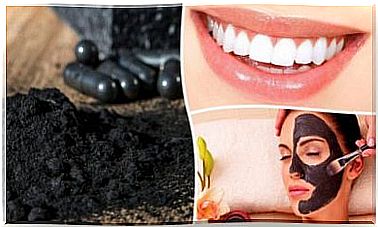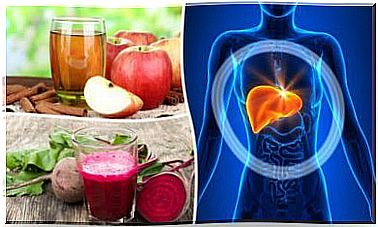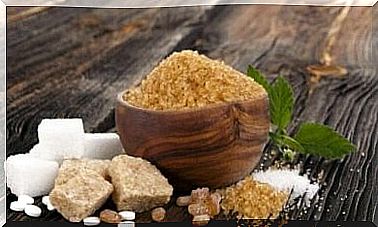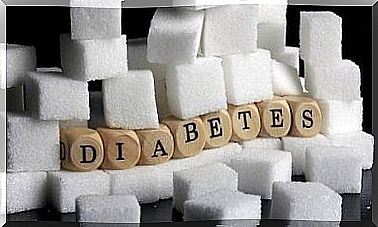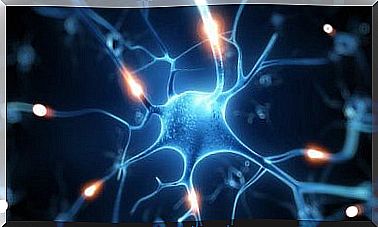6 Side Effects Of Excess Apple Cider Vinegar
Excessive use of apple cider vinegar has some negative effects. Therefore, although this is a product with benefits, it should be used in moderation. We will tell you more about it later.

Some people are completely unaware of the possible side effects of too much apple cider vinegar. Although health properties are attributed to this product, its use in large quantities causes undesirable reactions which even represent a danger.
So far, there is not enough evidence on the safety and effectiveness of this natural ingredient. For this reason, although it can be included in the regular diet, moderate and one-off consumption is recommended. Would you like to know more?
What is apple cider vinegar?
Apple cider vinegar is an organic product obtained by combining apples with yeast. During its process, the yeast converts the sugars in apples into alcohol. Then, by adding bacteria, the alcohol is fermented into acetic acid until it reaches a concentration of 5 to 6%.
This acid is classified as a “weak acid” and this is responsible for many of its beneficial effects. However, the product also contains water and other micronutrients.
According to a study published in Critical Reviews in Food Science and Nutrition, the acetic acid in apple cider vinegar helps with lipid metabolism and reduces the risk of obesity and type 2 diabetes. So why not consume it in excess?

Side effects of excess apple cider vinegar
Although it is known as a healthy product, excess apple cider vinegar causes serious side effects. For this reason, it should always be taken with caution, avoiding too high doses. Also, if possible, it is best to dilute it in water. What can he cause?
1. Delays stomach emptying
Drinking a lot of apple cider vinegar can make symptoms of gastroparesis worse. The latter is a common condition in people with type 1 diabetes. It consists of a dysfunction of the nerves in the stomach, which makes it difficult to cleanse the stomach.
What happens is that this ingredient slows down the rate at which food leaves the stomach and enters the lower digestive tract. Hence, it reduces the high spikes in blood sugar, but also slows the absorption of nutrients into the bloodstream.
The symptoms are as follows:
- Nausea.
- Stomach pains.
- Abdominal distension.
2. Causes digestive discomfort
For some people, apple cider vinegar is irritating and causes an upset stomach. Although there are studies that associate acetic acid with a greater feeling of fullness, several hypotheses suggest that this effect is the result of the indigestion it causes.
In a controlled study published in the International Journal of Obesity, a group of people consumed a drink containing 25 grams of apple cider vinegar. In the end, they reported having a reduced appetite, but also an unpleasant feeling of nausea.
3. It is associated with low potassium levels and bone loss
To date, there are not enough controlled studies on the relationship between apple cider vinegar and blood potassium levels. There is also none on its link to increased bone loss. However, there is a publication on a case report of these effects.
Specifically, thanks to Nephron, it was reported that a woman who consumed large amounts of ACV for a long time had to be admitted to the hospital with low potassium levels and alterations in chemistry. blood.
The woman consumed about 250 milliliters of apple cider vinegar diluted in water for 6 years. The diagnosis showed osteoporosis and mineral leaching from the bones. Doctors have also found that too much acid can also reduce the formation of new bone.
4. May cause erosion of tooth enamel
Consumption of foods and drinks that are too acidic leads to deterioration of tooth enamel. While there are other studies on the effects of sodas and fruit juices, there is also some evidence for damage caused by acetic acid in this layer that covers the teeth.
A publication in the medical journal Clinical Laboratory indicates that vinegars can cause a loss of 1% to 20% of dental minerals after four hours. However, the study was done in the lab and not in the mouth, where saliva appears to help alleviate heartburn.
In any case, the general recommendation is to avoid direct exposure of the teeth to pure undiluted apple cider vinegar.
5. Causes throat burns
Be careful ! Consuming too much pure apple cider vinegar can cause burns in the esophagus. This is stated in a review published in Acta Pediatrica, in which the effects of consuming harmful fluids accidentally ingested by children have been observed.
Researchers determined that the acetic acid in vinegar was the acid that caused the most throat burns. For this reason, they classified it as a “strong caustic substance” which should be out of the reach of children.
Acetic acid can damage tooth enamel when consumed in excess.

6. It can cause skin burns
Some people claim that applying apple cider vinegar to the skin has certain benefits; however, its application in excess and without dilution appears to have the opposite effect. In a case report published in The Journal of Clinical and Aesthetic Dermatology, a 14-year-old girl suffered erosions on her nose after following a protocol seen on the Internet with this product.
In another case, a 6-year-old boy suffered burns to his legs after his mother applied apple cider vinegar to fight an infection. It seems that these risks decrease after diluting the vinegar in water. However, it is recommended to do a small test of the product before using it on large areas of the skin.
Apple cider vinegar should not be used in excess
The key to avoiding these side effects of apple cider vinegar is to avoid overdoing it. So far, in moderate amounts, it is considered safe and beneficial for most people.
In any case, the ideal is to consult your doctor before consuming it regularly. Remember that sometimes you can see interactions with medications. Therefore, it is better to avoid it in case of treatment.

